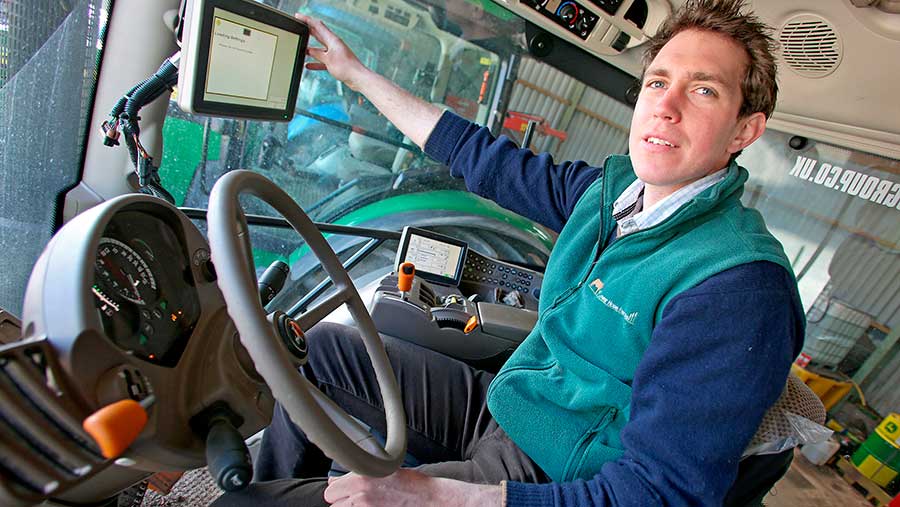Farmer Focus: Nitrogen cutback on thick oilseed rape crops
 © Richard Stanton
© Richard Stanton Spring has finally sprung and according to the fruit team, who are on blossom watch, we are at a similar stage to the spring of 2014, if that is of any help to anybody!
As of yet we have not sown a seed, but hopefully by the time you read this we will have made a dent in our spring drilling campaign.
Our soil is only just becoming dry enough to do anything and in places, on the heavier types, it is still wet at depth.
See also: Read more from our Arable Farmer Focus writers
Our spring beans are planned to go in soon, after the low disturbance subsoiler has been through the over-winter cover crop.
This is doing a good job of removing a pan at nine inches while not heaving it all up. The beans will then be drilled straight into this.
After some well-known software training, I have been having a go at creating my own soil type maps using aerial imagery, our own knowledge and the ‘My Soil’ app.
This is hopefully the start of variable rate seeding that I am convinced will be beneficial to our varying soil types. This will allow me to try out the technique without having to pay for the privilege.
This will identify whether it’s worth pursuing with and maybe to a greater degree of accuracy.
Fertiliser application
The final application of nitrogen has been made to the malting barley and the oilseed rape. The rape is just coming into flower and is definitely ahead of last year. With such a high green area index before stem extension, I have reduced the total planned nitrogen slightly.
This time last year I wrote how our first lambs that we sold averaged 50p a head more than a tonne of wheat on the day. Roll on 12 months and things are different again, just highlighting what variable times we are in.
Lambing is now complete and condensing it has definitely improved the efficiency and justification for additional labour, but I think there is still room for improvement.
Finally I was lucky enough to be invited by our local John Deere Dealer, TAG of Leominster, on a John Deere Factory visit in mid-March.
The trip was brilliant, well organised, with great company and very interesting especially in the product development, both machines and AMS.
Jack Hopkins is the assistant farm manager on a 730ha estate in north Herefordshire on predominantly silty clay loam soils. Cropping includes wheat, barley, oilseed rape, spring oats and peas, plus grassland that supports a flock of 1,000 ewes and 25 pedigree Hereford cattle.

